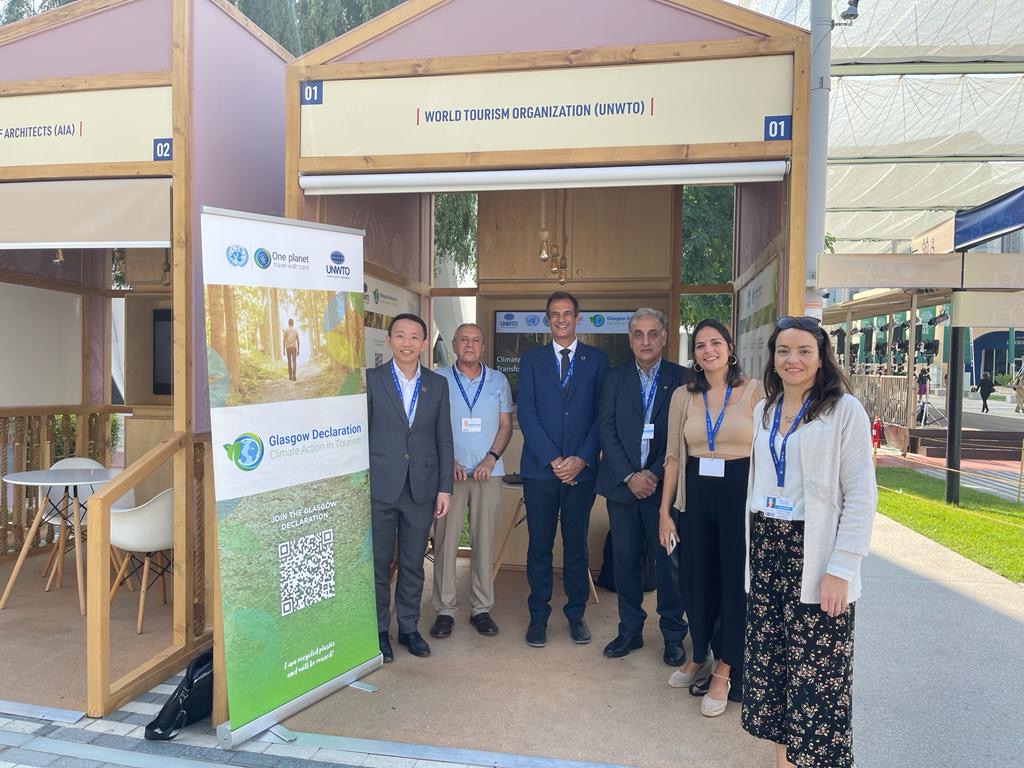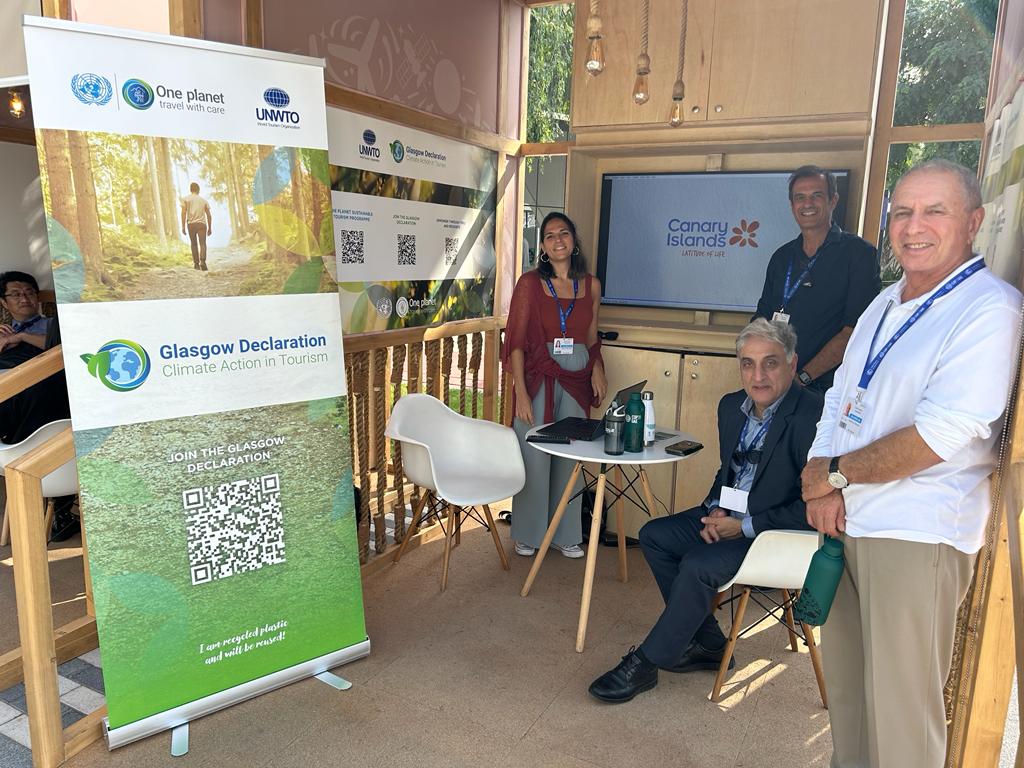- José Juan Lorenzo, the Managing Director of Tourism for the Canary Islands, introduced the ‘Journey to Decarbonization,’ a digital tool enabling companies to assess and diminish their carbon footprint, during the conference in Dubai.
- “We have been pioneers in addressing the commitments established in Glasgow, which pursues Net Zero by 2050. We have implemented necessary measures to support the Canarian tourism industry and promote the objectives of the Declaration among professionals, tourists, and citizens of the archipelago,” affirms Lorenzo.

The Canary Islands, exclusively among Spanish regions, participated in the 28th edition of the United Nations Climate Change Conference (COP28) in Dubai. The region demonstrated its unique status as the only Spanish locale with a Climate Action Plan designed to curtail CO2 emissions in alignment with the Glasgow Declaration.
The Department of Tourism and Employment of the Government of the Canary Islands, represented by the public entity Turismo de Islas Canary Islands, attended COP28 to elucidate the strategies already in motion to diminish the carbon footprint of the Canarian tourism sector. The region employs the ‘Journey to Decarbonization,’ a free digital tool for tourism companies to gauge and reduce emissions.
“As pioneers in adopting the established objectives and commitments in Glasgow, we are taking decisive steps towards Net Zero in 2050, supporting the Canary tourism industry and advocating for the Declaration’s objectives,” states José Juan Lorenzo, the Managing Director of Tourism for the Canary Islands, who attended COP28 alongside Isabel Flowery, the Environmental Sustainability technician of the public company.
Canary Islands Tourism participated in COP28 under the auspices of the World Tourism Organization (UNWTO), joining 857 global signatories of the Glasgow Declaration, with 261 already possessing a Climate Action Plan, including the Canary Islands.
Jéssica de León, the Minister of Tourism and Employment, extols the advantages of being the exclusive Spanish destination at the paramount climate conference globally. “It allows us not only to share our experiences and gauge the interest in the Glasgow Declaration from countries such as Saudi Arabia, Angola, or Peru but also to partake in a global action plan working towards tangible solutions and proving that a decarbonized world is achievable,” she notes.
Attending COP28 has afforded Turismo de Canarias the opportunity to delve into the climate action plans of other Glasgow signatories, share experiences, and inform interested destinations worldwide firsthand.
Lorenzo details that they learned about concrete experiences of tourism companies successfully reducing carbon emissions, such as a cruise company operating in the archipelago planning its first Net Zero ship by 2030, hotels designed for climate neutrality from construction, and the application of Artificial Intelligence to reduce food waste in tourism, already implemented on the islands.
Tourism representatives from the Canary Islands explained the new digital solution, ‘Journey to Decarbonization,’ in Dubai. The tool, accessible at Sustainability.canariasdestino.com, provides a free carbon footprint calculator, a self-diagnosis questionnaire, personalized recommendations, and downloadable resources for initiating a climate action plan.
To support SMEs in this process, specialized advice is available from the Office of Sustainability created by Turismo de Islas Canarias, offering support services and answering queries related to the tool via a webchat and the sustainability@canariasdestino.com mailbox. Training sessions on environmental sustainability and tool usage will also be provided, primarily targeting small and medium-sized companies new to carbon footprint measurement.
COP28, held at Expo City Dubai from November 30 to December 12, saw the participation of the Canary Islands on December 8, 10, and 11. The conference focused on crucial issues, including limiting future planetary warming to a 1.5ºC increase, the cessation of fossil fuels and the global peak of CO2 emissions set for 2025, as well as the reiteration and review of the Paris Agreements conducted during the 15th edition of COP.

